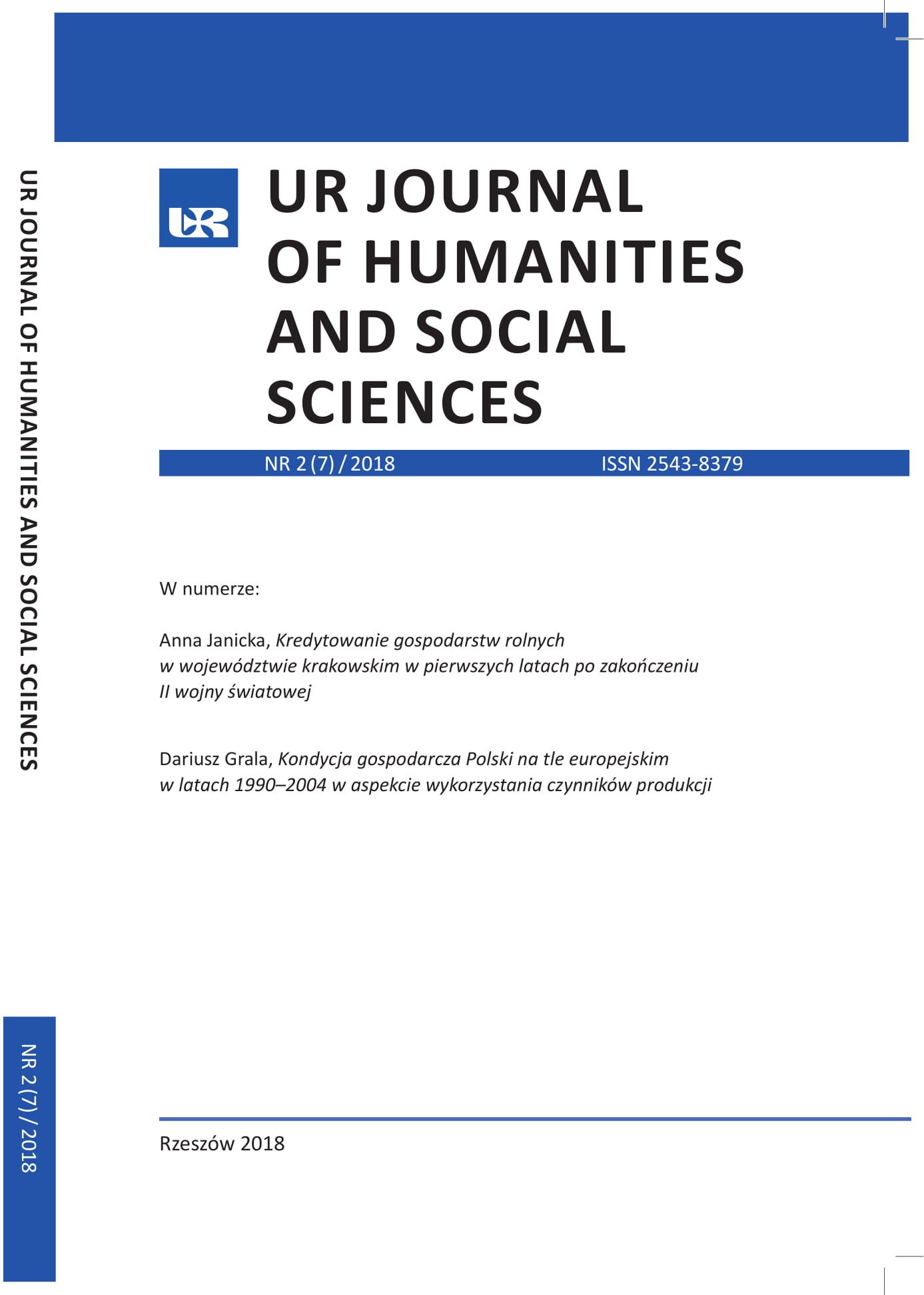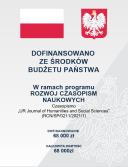Farm crediting in the Krakow Voivodeship in the years immediately after World War II
DOI:
https://doi.org/10.15584/johass.2018.2.2Keywords:
Krakow Voivodeship, World War II, agriculture, State Agricultural BankAbstract
The agricultural situation in the first years after World War II was extremely difficult. The unstable political scene hindered the establishment of an atmosphere of confidence and certainty, which was a precondition for the revitalisation of economic life. In addition, economic instability disrupted the normal course of economic life and inhibited its development after the war.
The most important issue determining the fate of the nation was the rapid increase in food production. The Krakow Voivodeship had to face the reconstruction of farms, both in the fields of horticulture and livestock farming. Investments provided an opportunity to increase agricultural production However, impoverished farmers lacked the financial means to cover them. Consequently, the demand for capital in agriculture was enormous and it often exceeded the capacity of credit institutions.
In the period considered, the crediting of agriculture was almost entirely controlled by the State Agricultural Bank, and its branches played a decisive role in the distribution of loans within the scope of its activity. State Agricultural Bank financed mainly reconstruction, rebuilding and development of countryside, state agriculture industries, current assets and investments in farms, gardening, breeding farms and agricultural experiment stations.
Crediting of agriculture in the first years after World War II coincided with a nationwide trend. Indirect and direct loans were given by the State Agricultural Bank branch in Krakow. New loans in Krakow Voivodeship provided a chance for reconstruction and agriculture development.
Downloads
Downloads
Published
How to Cite
Issue
Section
License
Copyright (c) 2018 Wydawnictwo Uniwersytetu Rzeszowskiego

This work is licensed under a Creative Commons Attribution-NonCommercial 4.0 International License.



